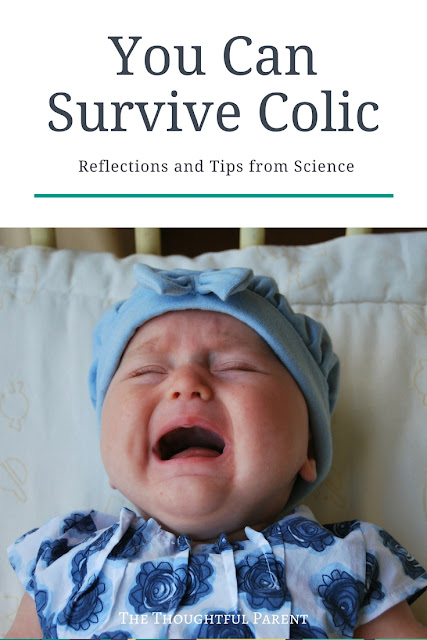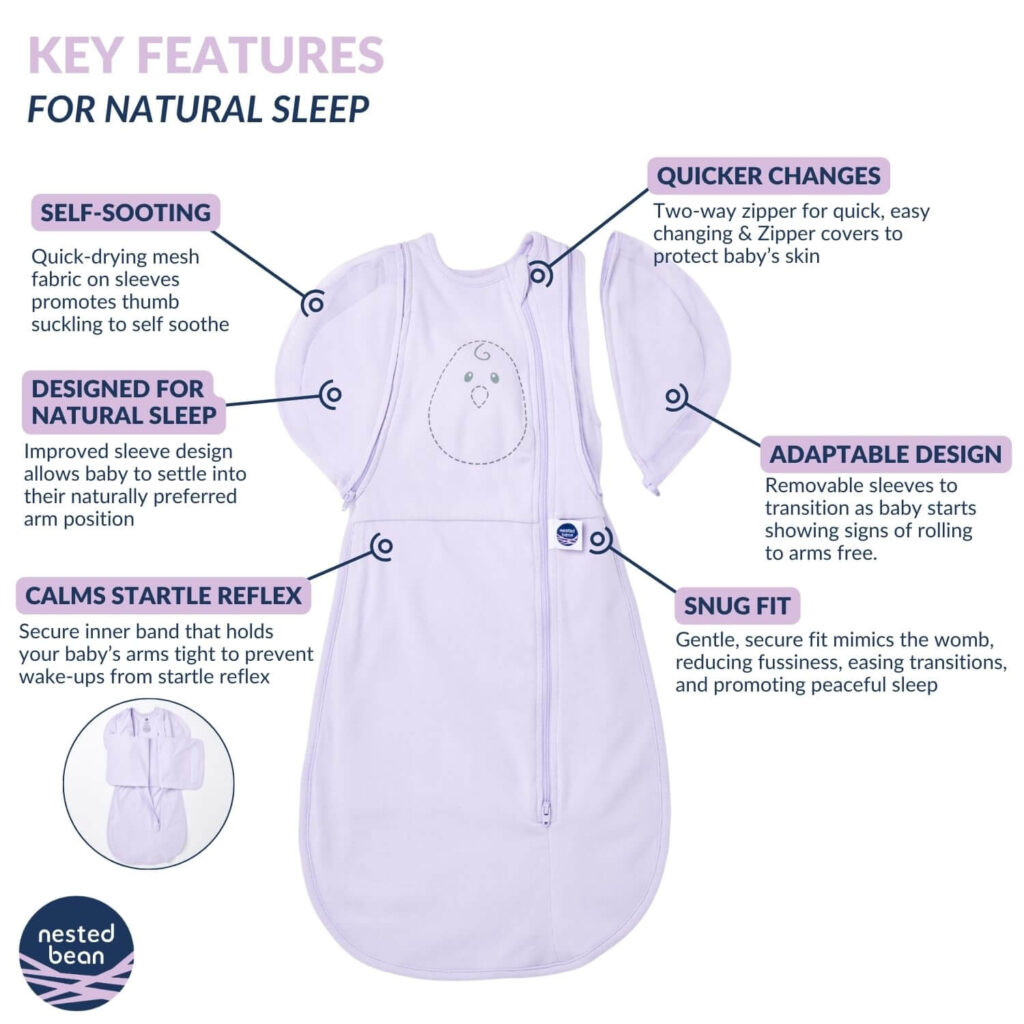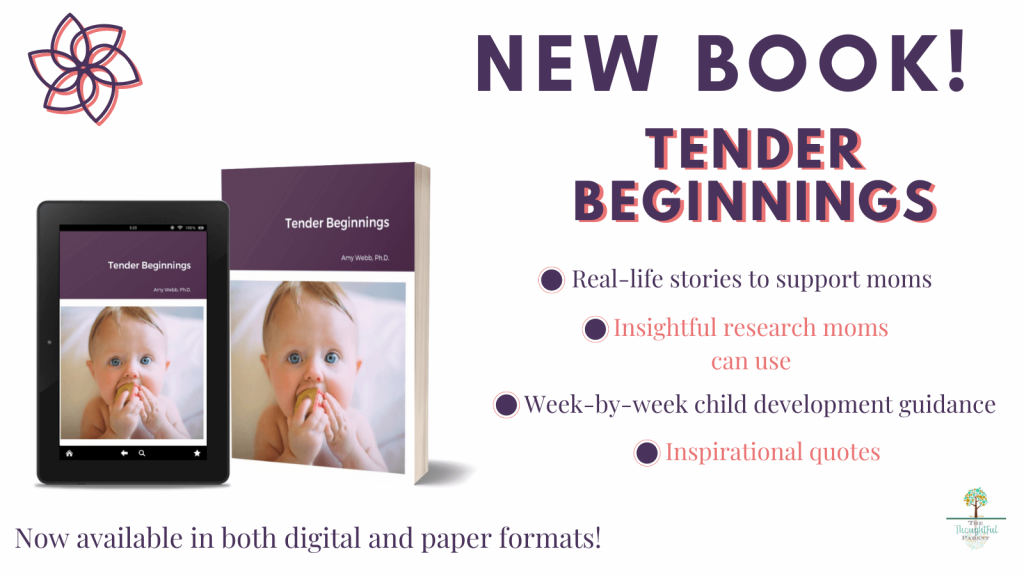Sneak peek: As a parent who had a colicky baby, I know how challenging it can be. A few ideas from science and personal experience on how to survive colic.
I recently came across a fascinating article from The New Yorker entitled, The Colic Conundrum and oh, how I could relate to this article. My son was quite fussy as an infant, and although he was never formally diagnosed with colic, I believe that’s probably the only label that would describe his behavior. I decided I had to address this on the blog since it’s a common child development and parenting issue. Plus, I wanted to offer other moms some tips on how to survive colic.

Although he did not have all the “symptoms” described in this article, he did have to be held, bounced, rocked, and nursed the majority of the day so he would not cry for long periods. He slept fairly well at night (2-3 hours at a time), but in his early months, the only way he slept that long was for him to sleep on either my or my husband’s chest.
Additionally, he HATED the car seat. Once strapped in, he might be content for 5-10 minutes, and then it was blood-curdling screaming the rest of the time. Needless to say, we didn’t leave the house much. I rarely discuss my son on this blog, but I felt like this topic was one where my personal experience might help other new moms out there who are struggling with this difficult issue.
*This post contains affiliate links. Purchasing through these links helps support this blog at no added cost to you.
What is Colic?
The main point of the New Yorker article was that, despite years of research, doctors and psychologists really do not know much about what causes colic or how to treat it. Colic is definitely a real combination of issues, but it’s unclear what the causes are. Before having a child, I always thought colic was a gastrointestinal problem in which the baby has a difficult time digesting milk, and this causes stomach pain. Although some infants with colic do have digestion problems, including reflux, many babies do not and simply seem to cry for no reason.
Related reading: The Long Reach of a Baby’s Temperament
One researcher who has done quite a bit of work in recent years on the subject of colic believes that these babies are “hypersensitive to normal stimuli”; that is, “they perceive and react to changes in their bodies (such as hunger or gas pangs) or in their environment (such as loud noises or the experience of being touched) more acutely than do other babies.” Although I don’t know if there is much research to support this hypothesis, I think this is one of the best theories I’ve heard. Personally, just knowing this gave me the best insight into how to survive colic.
Like many parents, I had read Dr. Harvey Karp’s The Happiest Baby on the Block while pregnant and I understood the neurological immaturity of newborns. Dr. Karp argues that the first three months of a newborn’s life are really like a “fourth trimester” in which they have to adapt to life outside the womb. Unlike other mammals, humans are born still being very immature, both physically and neurologically. They go from existing in a warm, dark environment of constant movement, noise, and nourishment to a world that is bright, cold, and by their standards, quiet.
After carefully observing my son for weeks, I began to see that this theory seemed to fit him. He was especially sensitive to stimuli and had very little ability to self-soothe. Of course, no newborn has much ability to self-soothe but you may notice that some young infants will suck on their hands or take a pacifier. For others, like my son, none of these strategies offers comfort.
My son was very alert and for lack of a better word, “jumpy.” He often startled easily at the sound of the air conditioner turning on or cars driving by. On the other hand, he was soothed by the sound of things like the hair dryer or the vacuum cleaner (great tip from Dr. Karp’s book!). He loved constant motion like being in the front pack baby carrier while bouncing on an exercise ball.

Surviving Colic
Theories aside, I write all this to say: colic does get better! This is hard to hear if you are trying to cope with a baby who seems to cry endlessly, but know that it does get easier. Around 3 months, my son started having longer and longer periods of awake, happy time and by 6 months, he had established a fairly regular sleep schedule and would actually nap during the day for more than 30 minutes at a time. I am happy to report that now he is a very happy, healthy, active (climbing on everything!) toddler who has learned to self-soothe and will actually tolerate the car seat. Surviving colic with your sanity intact is possible.
As in many aspects of parenting, there is hardly ever a “magic fix” for any major challenge. The “fix” for colic in our case was tons of patience, continuing to be responsive to our baby’s needs, and TIME. After parenting for 10 years now, I have found through many ups and downs, that TIME usually resolves most problems. I know that’s not what new parents really want to hear, but it’s very true.
Newborns are very neurologically immature and need time to mature, to figure out this big world and know that their caregiver is reliable.
How to Survive Colic: When to Seek Out Help
One issue the New Yorker article points out that I feel is very important is the fact that having a baby with colic often puts moms at risk for depression and a poor infant-parent relationship. It’s easy to see why this could happen. Professor Barry Lester who studies colic, describes it this way,
“The most common thing our patients say is, ‘I must be doing something wrong.’ It triggers a whole cycle: the mother feels inadequate and unable to parent effectively. And when these mothers get angry at their baby, they feel guiltier: ‘How can I get angry at my baby?’ The problem spirals out of control.”
Feeling as though you cannot do anything to soothe your child is very discouraging, but it’s important to realize that, in most cases, you are doing all you can do by simply responding to the baby’s needs as best you can. Even if the baby continues to cry despite the rocking, feeding, etc., I firmly believe that the baby internalizes the fact that you are there helping him/her try to cope. Studies have shown that babies who are responded to promptly (especially in the first 3 months) will, over time, cry less frequently.
If you have a colicky baby, it’s also important to seek out support when you need it. I was very fortunate to have a wonderful husband, parents, and in-laws to help provide support (and keep things in perspective) when I needed it. Even if you can find a trusted person to just hold the baby for an hour so you can take a break and gather your thoughts, it will make a difference in your state of mind.
You may feel (as I did) that colic “stole” the first few months of your relationship with your baby, but know that all the efforts you put forth for your baby will ultimately pay great dividends with a happy, content baby. In a few months, when you see your baby contentedly playing with a toy, you will not take that happiness for granted.






Brandon
Wonderful post. My wife and I went through the same thing that you are describing and all of my human developoment background and studying of the transition to parenthood could not have prepared me for a baby that would only sleep about 4 hours total a day including naps and who cried literally all the time no matter what we did. But by around 4-6 months she just grew out of it and was as happy as ever. You can survive!
Brandon
http://parentsareimportant.com
Anonymous
Oh, I wish I had a dollar for everything about babies that doctors haven't quite cottoned out yet. No, wait, I'd trade that dollar for a good answer. But you're right: it all works out, one way or the other!
Shannon
Thank you for this post!